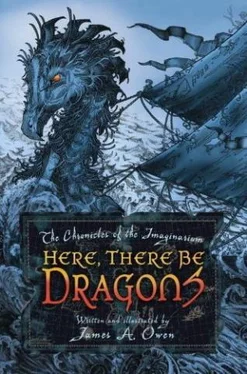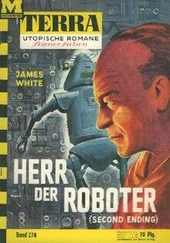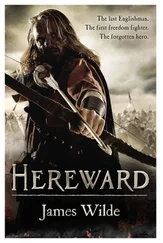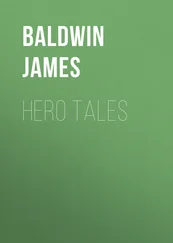The tapping outside in the alleyway became more pronounced, and he suddenly realized it was less the sound of tapping than it was a soft cacophony of claws, snapping together in anticipation. He set aside his pen and notebook and settled back in his chair. There was no denying it. It was time.
The strained amber light of an English afternoon streamed through the greasy windows of the door as it slowly opened into the study.
He refilled his pipe with his special cinnamon tobacco mix and noted with passing interest that clouds were beginning to gather on the far horizon.
A storm was coming.
It didn’t matter, he thought to himself with some satisfaction. He had said the things he needed to say to the person who needed to hear them. He had protected that precious stewardship that needed protecting, and passed it to those who would use it wisely and well.
There was, he concluded, not much more that could be asked of an old scholar, in this world, in this lifetime.
The silhouette in the doorway gestured to him, and he caught a glimpse of wickedly sharp steel, which curved to a point, as the visitor’s arm rose and fell. The clicking noises in the alley grew louder.
“Greetings, Professor,” the shadowy figure said. “Might I have a word with you?”
“It’s not here,” the professor said, lighting his pipe and drawing deeply on it. “You’re too late.”
His visitor appraised him for a moment before concluding that the professor was speaking the truth. “I’m very sorry to hear that,” he said. “That does not bode well for you.”
The professor shrugged. “What happens to me is no longer important. You may claim my life, but I’ve put an empire forever out of your reach—and when all is said and done, which of the two matters more?”
The visitor gestured again, and the tapping noises outside gave way to snarls and animal howling.
There was a rush of bodies, and in seconds the small study was filled with ancient steel, and pain, and blood.
When the noises again faded to silence, the visitors left the study as they had found it, with one exception.
It would be several hours before the first raindrops from the approaching storm would begin to freckle the paving stones in the street, but the professor would not see them fall.
Part One
The Imagination Geographica
“There’s a very strange man outside,” said Jack.
The slim,cream-colored note may just as well have been inserted into a bottle and tossed into the ocean rather than sent by post, for by the time John received it, the professor was already dead.
For perhaps the hundredth time, John took the note out of his pocket.
My Dear John,
Please make all haste to London. There is much, too much I’m afraid, that should have been explained to you well before now. I only pray that this letter finds you well enough to travel, and that you will bear me no ill will for what is to come. I do not know if you are ready, and that is my own burden to bear. But I believe you are able, and mayhap that is enough. I hope it is.
Professor Sigurdsson
The letter had been dated a week earlier, the ninth of March, 1917, and had reached him at the hospital in Great Haywood the day before. John cabled a reply to his mentor, requested a temporary leave, dispatched a note to his wife of less than a year at their home in Oxford, explaining that he would be absent for perhaps several days, and immediately arranged passage to London.
It was the messenger who delivered the cable who found that a murder had occurred and notified the police. John knew without asking that the officer waiting at the platform in London was there to speak with him, and why.
The train from Staffordshire had run late, but this was not unexpected, nor was it any longer even an inconvenience. It was simply one of the erosions of normality that came with a constant state of war.
John had been on leave from the Second Battalion for several months now, since before the holidays. To the doctors, he had pyrexia; it was “trench fever” to the enlisted men. In simpler parlance, his body had grown weary of the war and manifested its protest with a general weakness of the limbs and a constant fever.
On the train John fell immediately asleep, and his fever coalesced into a dream of a mountain of fire, spewing hot ash and lava into the trenches of the French countryside, consuming his comrades as they held fast against the German offensive. John watched in horror as those who fled the trenches were cut down by gunfire. Those who remained, crouched in fear, were swallowed up, the sons of England become children of Pompeii as they died in flame and smoke….
He awoke to the shrill whistle of the train, signaling their arrival at the station in London. He was flushed and sweating and looked for all the world to the awaiting constable as if he was complicit in the murder of the man he had come to see. John wiped his brow with a kerchief, shouldered his backpack out of the luggage racks, and stepped off the train.
His arrival, and his subsequent departure with the policeman, were noted by no less than four individuals, mingling invisibly within the crowds exchanging places between the platform and the trains. Three of them were cloaked and walked a bit awkwardly, due to the inverted joint in their lower legs that made them walk as if they were dogs, striding upright on two legs.
Exactly as if they were dogs.
The strange figures disappeared into the throng to report what they had seen to their master. The fourth, which had been sitting alongside John on the train, slipped out of the station and turned down the street taken minutes before by the constable and the young soldier from Staffordshire.
“I’m just saying that there are a number of uses for an English night far superior to investigating a murder,” said the inspector in charge of the murder scene, a stout, affable fellow called Clowes. “You can bet the killer, whoever he may be, isn’t out traipsing about in this muck. No, he’s home by now, having done his business for the day, warming his toes by the hearth and sipping a nice mulled brandy, while I have to be out here on the verge of catching my death….”
Clowes caught himself mid-complaint and gestured in apology. “Not that talking with you lot is all that bad, mind you. Circumstances.”
It took John a few moments to realize that he was not the only one being interviewed that evening about the professor’s murder. For the first time, he noticed the other two cuckoos, shivering, nodding at the questioning police, wondering how they’d come to be in this particular dreadful nest.
Shaking hands, they introduced themselves. The younger one, called Jack, was straw-haired and fidgety; the older, Charles, was bespectacled and efficient. He was answering the constable’s queries as if he were tallying an account at Barclays. “Yes. I arrived in London promptly at four forty. No, I did not vary from my planned agenda. Yes, I realized he was dead right away.”
“And your reason for the visit?” asked Clowes.
“Delivery of a manuscript,” said Charles. “I’m employed as an editor at the Oxford University Press, and Professor Sigurdsson was to add annotations to one of our publications.”
“Really?” said Jack. “I’ve just been accepted there.”
“Well done, Jack,” said Charles.
“Thanks,” said Jack.
“So, boy,” said Clowes. “Your name is Jack, is it?”
“Yes sir,” Jack said, nodding.
“Ah. Not the Jack from up Whitechapel way, are you?” asked Clowes.
“No,” Jack replied before he had time to realize that the inspector was making a joke. “Oxford.”
“Two of you at Oxford, eh?” said Clowes. “That’s an interesting coincidence.”
“Not coincidence,” said Charles. “Selective association is a privilege, not a right.”
“I’m a Cambridge man myself,” said Clowes.
“Oh, uh, sorry,” stammered Charles.
“Never actually did go to university myself, mind you,” Clowes said to John behind his hand. “But he looked like I’d seen him in the Queen’s knickers, didn’t he? By the way—where are you from, ah, John, is it?”
“Birmingham, although I’m billeted at the hospital in Great Hayward at present.”
This was not entirely correct, but John thought that pointing out that all three of them were actually from Oxford might not make his evening any easier, nor theirs, for that matter.
There was a certain kind of brotherhood that arose from the shared experiences of warfare, particularly among young men who had shared a trench for a fortnight. It was a different kind of fraternal experience to have been brought together as strangers, who otherwise had very little in common, united only by a murder.
“Never met him,” Jack said of his affiliation to the corpse. “In fact, I had just arrived here in London for the evening, to deliver papers for a solicitor in Kent.”
The inspector blinked, then blinked again and turned to Charles.
“My story is not much different from his, I’m afraid,” Charles said, adjusting his glasses. “I was only here on university business.”
“That leaves you, John,” said Clowes. “I suppose you didn’t know him either.”
“No,” said John. “I knew him quite well. He was my tutor.”
“Really?” said Clowes. “In what studies?”
“Ancient languages, primarily,” said John. “That was the bulk of it, with additional coursework in mythology, etymology, history, and prehistoric cultures. Although,” he added, “in point of fact, I was a rather less than diligent student.”
“Aha,” murmured Clowes. “And why is that? Was he not a good teacher?”
“An excellent one, to be precise,” said John. “But the priest who helped to raise me when my father passed, who paid for the bulk of my schooling, in fact, believes that this kind of study is, ah…not practical.”
“I see,” said Clowes as he scribbled on his notepad with a stubby piece of graphite. “And just what is ‘practical’?”
“Banking,” replied John. “Commerce. That sort of thing.”
“Humph,” snorted Clowes. “And you disagree?”
John didn’t reply, but merely shrugged as if to say, What can one do?
“Well,” said Clowes, “I’m just about done here. But as you seem to be the closest thing Sigurdsson had to family, would you mind taking a look at the scene of the murder? It may be that you can spot whether something is amiss, where another could not.”
“Certainly,” said John.
Jack and Charles waited with the constable in the foyer while John and the inspector proceeded to the library. The smell hit John first—burned leather, accented by the cinnamon-tinged tobacco that only the professor smoked—but the room itself was a disaster.
Books were strewn about everywhere, and the backs of the shelves had been hacked to pieces. There was not a single piece of furniture unbroken. A number of books had been placed in the hearth to burn, with limited success.
“It was the bindings what done it,” said Clowes. “Leather, with metal clasps. Thick, holds moisture. Made a stench like the devil, and smoke black as his beard. That’s what drew the attention of the messenger when he got no reply at the door.”
John glanced around the room, settling his gaze on a dark, crescent-shaped stain on the rug near the partners desk where the professor worked.
“Yes,” said Clowes. “That’s where he was found. Bled out quick—he didn’t suffer, lad.”
John thought this was a lie, but he appreciated the gesture nevertheless. “I couldn’t tell you if anything’s missing, inspector. It seems that everything that isn’t chopped to bits or burned is…well, nothing worth noting. The books have some value, but only to persons like myself—and there’s nothing here worth killing for.”
Clowes sighed. “That’s what we were afraid of. Well,” he concluded, snapping his notebook closed, “I appreciate your time and cooperation. And I’m sorry for your loss.”
“Thank you,” said John. He turned to leave, then stopped. “Inspector? If I might ask, just how was the professor killed?”
“That’s the other thing,” said Clowes. “He was stabbed, of that there’s no doubt. But the point of the weapon broke off against a rib, and so we got a good look.
“As far as we can tell, he was killed with a Roman spear. A Roman spear of a make and composition that hasn’t been forged in over a thousand years.”
Читать дальше











